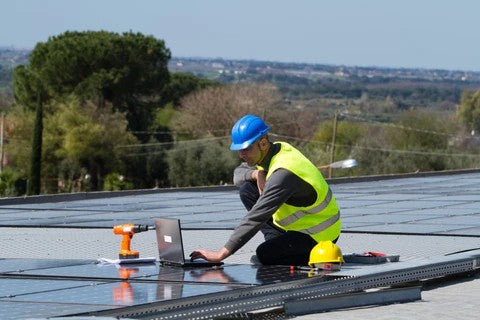
Are you considering investing in solar energy to power your home or business? Solar panels have become increasingly popular due to their environmental benefits and long-term cost savings. However, one important factor that potential buyers should consider is the degradation of solar panels over time. In this blog post, we will explore the reasons behind solar panel degradation, its impact on system performance, and how you can ensure the longevity of your solar investment.
1. Understanding Solar Panel Degradation
Solar panels are designed to last for decades, but they are not immune to the effects of time and environmental conditions. Solar panel degradation refers to the gradual loss of efficiency and power output over the panel's lifespan. The rate of degradation can vary based on the type and quality of solar panels, installation factors, and environmental factors.
2. Factors Contributing to Solar Panel Degradation
2.1. Exposure to Environmental Elements
One of the primary factors contributing to solar panel degradation is exposure to environmental elements such as sunlight, heat, humidity, and temperature fluctuations. Over time, these elements can cause wear and tear on the panel's components, resulting in reduced efficiency.
2.2. Potential Induced Degradation (PID)
Another significant cause of solar panel degradation is PID. PID occurs when voltage potential between the solar cells and the frame leads to current leakage. This phenomenon is more pronounced in areas with high humidity or salty air, and it can significantly reduce the panel's performance.
2.3. Potential Impact of Power Inverters
Power inverters play a crucial role in a solar energy system. They are responsible for converting the direct current (DC) produced by the solar panels into usable alternating current (AC) electricity for your home or business. While inverters are generally reliable, they can also contribute to degradation if not chosen or installed properly.
3. Impact of Degradation on Solar Panel Performance
As solar panels degrade, their efficiency gradually decreases, resulting in reduced power generation. This means that over time, your solar energy system may produce less electricity than it did when it was first installed. While modern solar panels typically come with performance warranties ensuring a certain level of efficiency for a specified period, understanding the rate of degradation can help you make a more informed decision.
4. Ensuring the Longevity of Your Solar Investment
4.1. Choose Quality Solar Panels
When it comes to solar panels, quality matters. Opt for reputable manufacturers with a proven track record of producing reliable and durable panels. High-quality panels are built to withstand environmental stressors and often come with extended warranties.
4.2. Proper Installation and Maintenance
Having your solar panels installed by experienced professionals is essential. Proper installation ensures that the panels are securely mounted and angled for optimal sun exposure. Additionally, regular maintenance, including cleaning and inspection, can help identify and address potential issues before they escalate.
4.3. Monitoring System Performance
Investing in a solar monitoring system allows you to keep track of your solar panel performance in real-time. Monitoring data can help you detect any unexpected drops in efficiency, allowing for timely interventions and maximizing your system's output.
4.4. Selecting the Right Power Inverter
As mentioned earlier, power inverters can impact the longevity of your solar energy system. Choose inverters from reputable brands that match your specific needs and panel configuration. Consider factors such as efficiency, warranty, and monitoring capabilities when making your selection.
Conclusion
Solar panel degradation is a natural process that occurs over time due to exposure to environmental elements and other factors. However, with careful consideration of the quality of panels, proper installation, regular maintenance, and the right power inverter, you can ensure the longevity and optimal performance of your solar energy system. Investing in solar energy is not just about reducing your carbon footprint and saving on electricity bills but also making a smart, long-term investment in a sustainable future. So, go ahead and take the leap into the world of solar energy – your wallet and the environment will thank you!

0 comments